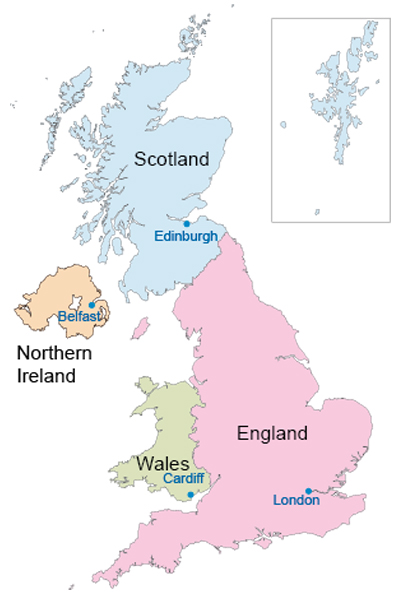2 Devolution and the United Kingdom’s constitution
The UK is made up of four nations: England, Wales, Scotland and Northern Ireland.

In recent decades power has been devolved from Parliament to new law-making bodies in three of those nations: Wales, Scotland and Northern Ireland. Devolution transferred power from Parliament to the devolved law-making bodies. The process was the subject of much debate and the Acts that created the new law-making bodies are examples of recent constitutional statutes. In theory, Parliament remains the main source of power in the UK, because it granted limited powers to the new law-making bodies in defined areas. In theory, Parliament granted the new law-making powers and so it could remove them. Therefore, in theory, Parliament remains as the supreme law-making power.
Devolution impacts on the UK’s constitutional framework, as it questions the sovereignty of Parliament and creates a new relationship between the members of the UK. This section will give a basic overview of devolution and consider its impact.
